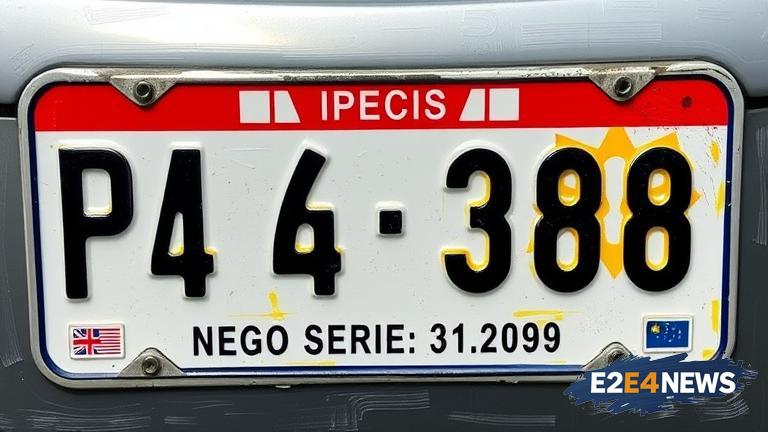The Road Transport Department (JPJ) of Malaysia has announced that the sales and registration of all special series number plates issued by non-governmental organizations (NGOs) will cease on December 31, 2019. This decision is part of the government’s efforts to regulate and standardize the issuance of vehicle registration numbers in the country. The special series number plates, which were introduced to allow NGOs to raise funds for their respective causes, have been available for purchase since 2015. However, the JPJ has decided to discontinue the program due to concerns over the lack of transparency and accountability in the issuance of these plates. The department has stated that the decision is final and that no further extensions will be granted. As a result, all NGOs that have been authorized to issue special series number plates must stop selling and registering these plates by the end of the year. The JPJ has also warned that any NGO found to be selling or registering special series number plates after the deadline will face penalties and fines. The decision to discontinue the special series number plates has been met with mixed reactions from the public, with some expressing disappointment and others welcoming the move. The JPJ has assured the public that the decision is in the best interest of the country and will help to prevent the misuse of vehicle registration numbers. The department has also announced that it will be introducing new measures to regulate the issuance of vehicle registration numbers and prevent fraud. The move is expected to have a significant impact on the NGOs that have been relying on the sale of special series number plates to raise funds. Some NGOs have expressed concerns that the decision will affect their ability to raise funds for their causes, while others have welcomed the move as an opportunity to explore alternative fundraising methods. The JPJ has stated that it will work with the affected NGOs to find alternative solutions and ensure that they are able to continue their fundraising efforts. The decision to discontinue the special series number plates is part of a broader effort by the government to regulate and standardize the issuance of vehicle registration numbers in Malaysia. The government has been working to improve the efficiency and transparency of the vehicle registration process, and the discontinuation of the special series number plates is seen as a key step in this effort. The move is expected to have a positive impact on the country’s transportation sector, and the JPJ has assured the public that it will continue to work to improve the safety and efficiency of the country’s roads. In addition to the discontinuation of the special series number plates, the JPJ has also announced plans to introduce new measures to prevent the misuse of vehicle registration numbers. The department has stated that it will be working to improve the security and integrity of the vehicle registration process, and that it will be introducing new technologies and systems to prevent fraud and misuse. The move is expected to have a significant impact on the country’s transportation sector, and the JPJ has assured the public that it will continue to work to improve the safety and efficiency of the country’s roads. The decision to discontinue the special series number plates has been welcomed by some as a positive step towards improving the transparency and accountability of the vehicle registration process. However, others have expressed concerns that the move will have a negative impact on the NGOs that have been relying on the sale of special series number plates to raise funds. The JPJ has stated that it will work with the affected NGOs to find alternative solutions and ensure that they are able to continue their fundraising efforts. The discontinuation of the special series number plates is a significant development in the country’s transportation sector, and it is expected to have a lasting impact on the way that vehicle registration numbers are issued and regulated in Malaysia.





